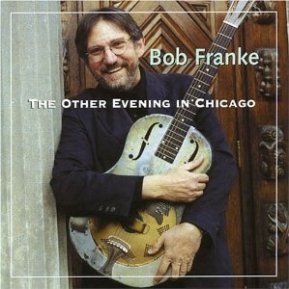Bob Franke has been a distinctive voice in the world of folk and acoustic music for many years. The world is a better place because Bob is in it. His gentle and lyrical way with words and melody encourages even the hardest heart to pay heed and listen…and absorb his message. It’s not every songwriter who can say that they’ve been covered by Peter, Paul & Mary, David Wilcox, June Tabor and John McCutcheon to name a few. Bob is a beloved fixture on the North Shore of Boston and as Christine Lavin has noted, “Bob Franke writes the kind of songs that will still be sung a hundred years from now.” How true. How true.
To learn more about Bob, visit his website.
Here’s a video of one of those classic songs, “Hard Love.”
Bob Franke and Claudia Schmidt appear at the me&thee in Marblehead, MA on Friday October 11.
It always makes me smile when I read that singer-songwriters that I like were English majors in college. Who were your favorite authors during that time? Do you feel as though what you learned in your literature classes helped pave the way when you began writing songs?
I was very much taken by Victorian poets, and what they had to teach me was invaluable in my songwriting development. Robert Browning had a lot of insight into the human condition, and a lot of insight into the changes that the Industrial Revolution was creating in England. He also had total control of rhyme and meter. There were many others, each with his or her own style. They were truly my teachers, and they were models for generations of song lyric writers.
Did you do much busking when you first started out? What was that like? Do you think it was a good way for you to craft your skills?
I was a performer for 10 years before I started busking, and a pretty good one in coffeehouses. Busking, though, was the best thing that ever happened to me as a performer. It paid the rent, and it freed me from the necessity of playing in bars. It also taught me compassion, the value of entertainment, and a whole raft of performance skills.
You often teach songwriting classes. Can you generally find something positive to say to all aspiring songwriters? Do you ever have to level with students and tell them that they better not quit their day jobs?
Anyone who takes one of my classes is there for a reason, and so it’s usually easy to find something positive to say about their work. Genius is a lot more ubiquitous than we are led to believe. These days, I have a day job myself, as do some do my favorite songwriters, so I try not to give vocational advice. I do tell my students the truth as I see it, and I advise them to tell it themselves in their songs. If the truth is there, and if they have the passion necessary to stick with the hard work of writing songs, the ability will come. When I first started singing, I was advised to speak my lyrics rather than sing them, but I knew I had a unique writing voice. I listened to hours of tapes of Billie Holliday and Hank Williams, and I learned how to use my physical voice to serve my spiritual voice.
You’ve had the opportunity to write some cantatas. How does that kind of songwriting differ from a one-off song? Do you have to plot a theme and figure out where to put the highs and lows of the piece in order to pull your audience into the whole experience?
It’s more similar than you might think. It’s all storytelling. I plot out highs and lows in every performance I do. It helps that my cantatas have pre-existing stories to which I try to be faithful.
How long did you run Saturday Night in Marblehead? What are your fondest memories from that time?
I ran Saturday night in Marblehead for 10 years. I dearly remember putting Stan & Garnet Rogers and David Allan Eadie in our home, and hearing them in my coffeehouse. Another fond memory is that of giving Claudia Schmidt one of her first concert venue opportunities in the Boston area, and watching her rocket ship take off. I also gratefully remember the friends who would help me move chairs and tables week after week. Another of my fondest memories is listening to Patty Larkin along with houses of about a dozen each on two occasions, and then on her third time back after the release of her Rounder CD, with an absolutely overflowing house. It felt good to pay her that night.
We all know that you’re a Mac Guy. Have you always been a geek? Were you one of the first people on your block to buy a computer?
I got my first PC in the mid-’80s, a Sanyo that was almost like an IBM PC but not quite, and used it to trick myself into responsible business behavior. I used to haunt computer bulletin boards before the advent of the internet. Somebody recently joked on Facebook: How many of you remember the first mp3 you downloaded? Well I do remember: it was Steve Gillette’s “Restless Wind.” I’ve come to Mac rather recently, actually, and I’m very happy I have, but for those of us who can’t afford Macs (listen up, musicians,) I recommend Ubuntu Linux, a free open source operating system with all the programs you’ll need. Owing to my experience of Vista, I’ve come to believe that nobody needs Windows. That’s just my humble opinion. Come argue with me between sets while I sell CDs!

